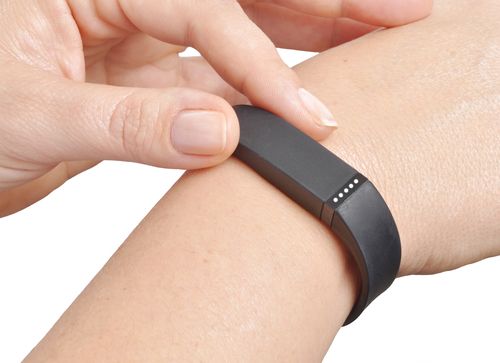Top Class Actions’s website and social media posts use affiliate links. If you make a purchase using such links, we may receive a commission, but it will not result in any additional charges to you. Please review our Affiliate Link Disclosure for more information.
UPDATE 4: On Oct. 26, 2020, Top Class Actions viewers who filed a valid claim for the Fitbit class action settlement started receiving checks in the mail worth $12.50. Congratulations to everyone who filed a claim and got PAID!
UPDATE 3: On Sept. 13, 2018, the Fitbit sleep tracker class action settlement was declined by a federal judge for a few reasons, but chief among them was a concern over the use of Fitbit coupons that would be given as part of the deal.
UPDATE 2: On Aug. 1, 2018, Fitbit reached a settlement deal resolving a class action lawsuit that claims the fitness device’s sleep-tracking capability is defective. Under the proposed Fitbit class action settlement, Fitbit will provide affected customers with a $5 voucher that will not expire and can be used on Fitbit’s website, as well as a $10 cash payment.
UPDATE: On July 15, 2016, a California federal judge refused to dismiss a putative class action lawsuit accusing Fitbit of misleading consumers that its wearable fitness devices can accurately track sleep quality.
Fitbit Inc. was hit with an amended false advertising class action lawsuit in a California federal court alleging that the sleep tracker on the device doesn’t work.
Plaintiff James Brickman of Florida and plaintiff Stephanie Mallick of California say that the Fitbit device, which tracks physical activity such as steps walked, calories burned and other information performs those functions as advertised.
Their contention in the Fitbit class action lawsuit is the claim that the device is able to track a person’s sleep activity “for an extra charge.”
Fitbit claims that the device is supposed to keep track of the number of hours the wearer has slept, the number of times they’ve woken up as well as the quality of their sleep.
“Despite Fitbit’s specific representations that the Fitbit sleep-tracking function can and does track and provide precise and accurate numbers, down to the minute, of how much sleep a user gets, the Fitbit sleep-tracking function simply does not and cannot accurately provide these numbers,” they explain.
The Fitbit class action lawsuit cites research, which the plaintiffs say proves that the “Fitbit sleep-tracking devices ‘consistently misidentif[ies]’ sleep.”
There are two different technologies used for monitoring sleep — polysomnography and actigraphy.
Polysomnography works by hooking up a patient “to electrodes which report information back to a technician.” It is considered the most accurate method.
Actigraphy is less invasive and attaches an actimetry sensor to the person. It is considered less accurate than polysomnography.
According to the Fitbit sleep tracking class action lawsuit, the Fitbit uses a type of “actigraphy-like technology called an accelerometer … to purportedly track a wearer’s movement while they are sleeping.”
“While affirmatively representing to consumers that Fitbit’s ‘sleep-tracking’ function will track ‘hours slept,’ ‘times woken up,’ and ‘sleep quality,’ Fitbit does not tell consumers that the device cannot actually track an individual’s sleep length, number of times an individual wakes up, or the quality of an individual’s sleep nor does it tell consumers that the device consistently overestimates sleep,” the class action lawsuit says.
“Despite being based on similar technology to the actigraphy, the Montgomery-Downs study unequivocally evidences that the actual, discrete, specific numbers that the Fitbit sleep tracking function presents to consumers as fact are substantially less accurate than any scientifically accepted method of sleep-tracking,” the plaintiffs explain. “Nowhere in its advertisements does Fitbit tell consumers this fact.”
According to the class action lawsuit, “Consumers who purchase these products and pay the extra amount for this function do not receive the value of this function for which they paid.”
“By advertising this sleep-tracking function without actually providing this function to its customers, Defendant is violating California and Florida law,” Brickman and Mallick explain.
“This lawsuit is to stop this unlawful practice, force the Defendant to return and disgorge its inequitable profits, and recover for customers the overcharges which they paid,” they add.
The Fitbit class action lawsuit was first in May by Brickman. The amended complaint includes allegations that Fitbit violated Florida laws and a California plaintiff.
The plaintiffs are represented by Patrick J. Perotti and Frank A. Bartela of Dworken & Bernstein Co. LPA, John A. Kithas and Christopher Land of the Law Offices of John A. Kithas and Christopher J. Morosoff of the Law Office of Christopher J. Morosoff.
Fitbit is represented by Erin Bosman, James Huston, Julie Park and William Stern ofMorrison & Foerster LLP.
The Fitbit Sleep Tracking Class Action Lawsuit is Brickman et al. v. Fitbit Inc., Case No. 3:15-cv-2077, in the U.S. District Court for the Northern District of California.
ATTORNEY ADVERTISING
Top Class Actions is a Proud Member of the American Bar Association
LEGAL INFORMATION IS NOT LEGAL ADVICE
Top Class Actions Legal Statement
©2008 – 2024 Top Class Actions® LLC
Various Trademarks held by their respective owners
This website is not intended for viewing or usage by European Union citizens.
















36 thoughts onFitbit Sleep Tracker Doesn’t Work, Class Action Says
I qualify for this
Add me don’t work
add
Add me
Add me